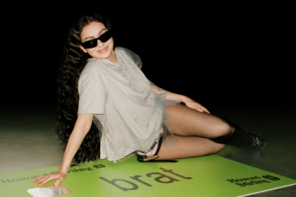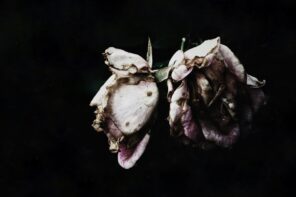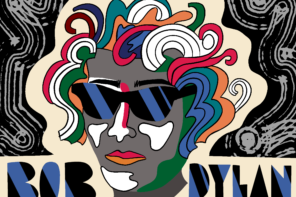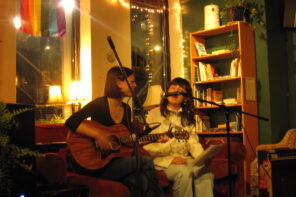“Don’t think about the past, it’s always there anyway,” proclaims Mitski in “Cop Car,” her newest single from the soundtrack of the forthcoming horror film, The Turning. Since her 2012 debut album, Lush, the Japanese-American singer has used music to carve out a space for herself in a society that rejects her. By mining from a painful past, she develops a better understanding of the future. The most overt example of this is one of her most popular songs, “Your Best American Girl”. This song is Mitski’s anthem, proclaimed to her white ex-boyfriend. The lyrics of the song are pure poetry, and the chorus is breathtaking; “Your mother wouldn’t approve of how my mother raised me / But I do, I think I do / And you’re an All-American boy / I guess I couldn’t help trying to be your best American girl.” Many people can relate to the message of being raised differently from a significant other. However, not many artists are comfortable enough in their sense of self to write and release albums chronicling their own shame, self-doubt, mistakes, and fears.
The Japanese-American singer has used music to carve out a space for herself in a society that rejects her.
Mitski Miyawaki comes out of discordance. She’s an Asian-American, a bass player, and a punk rocker with the pen of a poet. Ironically, a person so specialized creates music that anyone can relate to. The story of Miyawaki’s life is embodied by this blended identity. In a 2014 interview with L Magazine, Mitski remarks that her father worked for the U.S. State Department, creating a nomadic state in her younger years. With regards to her identity, the artist claims: “Sometimes I feel very Japanese, so I say I’m from Japan. I lived in Malaysia for 3 years. Sometimes, I just randomly say [Malaysian] if it’s a person I know I’m not going to meet again and I’m feeling playful. Usually, it’s just easier to say that I’m from New York, because at this point New York is the place I’ve lived longest, which is 5 years.” The constant movement stretched Miyawaki between identities, feeling never fully immersed in any one of them. Even today, the artist is wont to add Japanese captions to some of her social media posts. But she considers the U.S. her “home country,” perhaps due to the fact that the U.S. is where she underwent her musical schooling at Purchase College’s Conservatory. One gets the feeling that Mitski has had to rely on herself for friendship, identification, development of “norms”, everything.
On her second (self-released) album Retired from Sad, New Career in Business (2013) comes one of Mitski’s most emotional songs, “Class of 2013.” A song that is quite literally two minutes of Mitski screaming, pleading for the help of her mother. “Class of 2013” is so raw that it makes you want to open up. “Mom, am I still young?” begs the artist, “Can I dream for a few months more?” In contrast to other contemporary artists, Mitski is completely comfortable surrendering her emotions to her fans. It is unbelievably liberating to listen to an artist who displays her fears and insecurities in such a raw, yet peaceful way. A major factor of Mitski’s music is the way she straddles the dichotomy between the happy melodies she can create and the treacherous lyrics that speak to the erratic shortcomings of Mitski’s life as Mitski Miyawaki. In “Nobody,” one of the first singles released off Mitski’s 2018 album Be the Cowboy, Mitski sings, “I’ve been big and small, and big and small, and big and small again / And still nobody wants me.” Years after she became an international sensation, Mitski still struggles with body dysmorphia like so many of us.
In contrast to other contemporary artists, Mitski is completely comfortable surrendering her emotions to her fans.
“Nobody” in particular is one of Mitski’s most significant songs, especially when coupled with the Genius “Verified” video of her explaining its lyrics. Born out of the artist’s time in Malaysia following a world tour, “Nobody” is a serious bop about loneliness. The song’s beat is so disco dance-y, you almost don’t pay attention to the lyrics. It’s heartbreaking to hear Mitski talk about her experience writing it. The chorus, simply “nobody” repeated, recalls a moment in which Mitski lay on the floor of her hotel room, repeating “nobody” over and over to herself, consumed by her loneliness. As she puts it, “I fucking broke down.” The ability to repurpose one’s worst moments into beautiful art is inspiring. That’s why Mitski is much more than an artist. She is an example of the tenacity and self-forgiveness you need to exist in today’s society. Everyone is imperfect — Even Mitski, a candidate in my book for the most perfect and beautiful human ever to exist, struggles with self-doubt and fear. She normalizes addressing these feelings, talking them over with yourself, and becoming content with yourself as you are, warts and all. Shutting out those hateful voices in your head doesn’t always work. Sometimes you have to face them, say “fuck off,” and dance them away.








